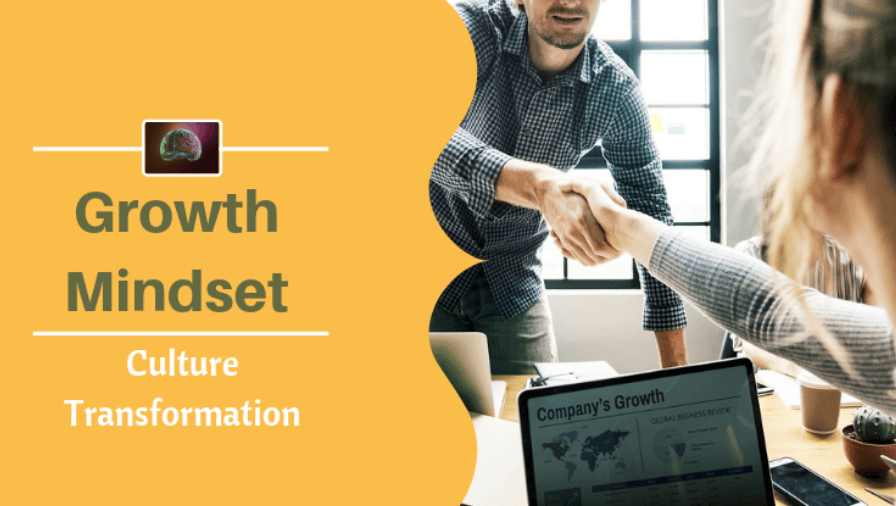A colleague once saw a bumper sticker that said, “We are all connected” and it sparked a conversation. Such a simple phrase, yet with so much more depth than just those four words.
Now more than ever, “We ARE all connected.” The simple phrase is a reminder that our actions and words have far-reaching and lasting effects on those around us, especially in the workplace. Our world is more culturally diverse than ever, which calls for greater responsibility to tolerate others and company responsibility to build cultural diversity and empathetic workplaces. Empathy is an acceptance of our differences. And the ability to treat others with respect and dignity is crucial. These skills can be learned with emotional intelligence training.
Estimated reading time: 5 minutes

Heartmanity is proud to partner with outstanding companies that we wholeheartedly recommend so this post may contain affiliate links. This means if you click on a link and purchase something, we receive a commission at no extra cost to you. Thank you for supporting the Heartmanity mission!
Diversity or cultural diversity is all around us in our daily lives, from families and communities to businesses and workplaces. How we connect and interact with each other is of the utmost importance to creating harmony in our daily lives and the world. Cultural diversity is a living and breathing thing, but what does it really mean?
What Is Cultural Diversity?
Cultural diversity or diversity is the differences in cultures, abilities, ideas, philosophies, backgrounds, and histories that exist among individuals. Within the workplace, Ideal.com states there are four main areas of diversity: internal, external, organizational, and worldview. Ask someone else and they may define diversity in terms of race, age, gender and sexual orientation, socioeconomic status, or religious view.
No matter what frame you put around diversity, there are no two people alike; nor do any of us share identical experiences or backgrounds. We are all unique, as unique as our fingerprints. And this uniqueness is a tremendous gift and strength when embraced. Similarities naturally exist among family members and communities; however, the workplace can have larger cultural differences, especially in our global economy. Friendships, families, and businesses are all richer with diversity, but only when our differences are honored and respected.
To learn more about building a culturally responsive workplace, check out: The Cultural Transformation online course.
The Nature of Diversity in the Workplace
We choose our communities and have commonalities with our families; however, we don’t have much say about our co-workers or bosses. Our workplace is a melting pot of cultural diversity that requires us to communicate and collaborate with people with opposing perspectives and backgrounds to our own. The skills needed to relate to and navigate cultural differences among co-workers are as vast as the differences among people. Espousing diversity is about a willingness to be open, humble, inclusive, and responsive to others respectfully.
Cultural Diversity in the Workplace Is an Asset
Cultural differences create opportunities, fresh perspectives, and exceptional skills that can influence creativity, productivity, and solutions. When differences are welcomed and celebrated, collaboration becomes a powerful force to create dramatic success for employees, teams, and companies. Google’s massive success is an excellent example of a business that is widely diverse. Creating supportive environments where employees are eager to share is crucial. Employees must be allowed to give feedback and work together, bringing their experience and perspective to the fore. Cultural responsiveness is imperative for the cultivation of these synergistic interactions in the workplace.
"When we listen and celebrate what is both common
and different, we become a wiser, more inclusive,
and better organization."
~Pat Wadors

Why Cultural Responsiveness?
Cultural responsiveness could be defined as “the ability to learn from and relate respectfully with people of your own culture as well as those from other cultures.” Cultural responsiveness in the workplace ensures an inclusive, accepting, and supportive environment for employees, teams, and leaders, extending to a company’s clients. Building a flow and ambiance requires responding to and getting curious about others’ cultures, responding versus reacting based on your own set of experiences.
Responsiveness is a part of empathy that is crucial to understanding others. This magnified resonance is contrary to reacting; reacting stems from judgment. Labeling and judging others cause misunderstandings as well as an uncomfortable and unproductive work environment. Open acceptance of others creates a safe environment for all differences to be honored and a bridge to fresh ideas and innovation that would otherwise be impossible.
Deep Dive into Learning Cultural Transformation.
Three Skills to Build Cultural Responsiveness
Responsiveness arises from a safe space where people are not only accepted for who they are, they are encouraged to be themselves. In a workplace, we each need to take the initiative to proactively learn about others’ cultures different than our own. Intentionally choose to dissolve the barriers and biases that prevent us from truly seeing each other.
To embark into the unknown of another's perspective can be uncomfortable and challenge our own blindspots. Nonetheless, these intentional actions can help us be more responsive to each other: our leaders, peers, co-workers, colleagues, and customers, fostering a work environment that welcomes diversity. When we accept diversity we receive the gold that was once buried; we then can mine and excavate it as a precious resource.
Here are some ways to enhance cultural responsiveness skills.
SKILL #1 - Cultural and Social Awareness
How to sharpen: Increase your awareness by discovering your current level of tolerance and understanding of others.
We are a product of our experiences and environments. There are cultural aspects, biases, and perspectives that we may not realize exist inside us. Objectively looking at our experience with an understanding of other cultures paves the way for change. Curiosity and openness to new ways of thinking can help you identify biases. When we heighten awareness, a lack of knowledge or blindspot is often highlighted. Now you are empowered to stretch and grow, eliminating blocks to communication.
SKILL #2 - Seeing Life from Another's Cultural Perspective
How to sharpen: Take time to learn about cultures and varying perspectives.
We all make assumptions due to too much or too little familiarity. For instance, growing up in the Midwest, I was raised on a pretty standard fare: biscuits, beef (a rotation of roast, steak, hamburgers, liver, and round again!), accompanied with potatoes and sweet corn. When I began conducting executive training on cruises, my palate met its match with exotic foods—things I couldn't even pronounce!
The limited foods that I tasted as a child clearly inhibited my ability to appreciate different cuisines, which I gladly surrendered. However, other conditioning factors and cultural influences may be more difficult to recognize and surmount. Raw oysters served in lime juice were easy to spot as absent in my Midwestern childhood. (A delicacy I have enjoyed many times since.)
Might you be basing some of your conclusions on current cultural experiences or limiting perspectives?
Every culture worldwide has differences and unique traditions and rituals. Travel is a wonderful way to increase exposure and understanding of cultures. More difficult during the pandemic, if you can't travel, augmented reality software (or VR for virtual reality) can take you there without leaving your home. Or join groups with a diverse membership. And nothing is more effective than hunger to learn and expand your awareness and understanding.
SKILL #3 - The Art of Asking Meaningful Questions
How to sharpen: Don’t assume you know how another person thinks, feels, and believes. Open yourself to new ideas.
Understanding others' perspectives can help us to be more compassionate by providing a window into another’s reality. One way to accomplish empathy for others is by asking meaningful questions to get to know them: their viewpoint, experience, values, and beliefs. Be genuinely interested.
Examples of possible questions:
- What was it like for you growing up in a small village in Africa?
- What were your interests as a child?
- How do you think that never leaving your small town impacted your view of the world?
- What do you see as the primary differences between your country and mine?
- What things do you like and dislike about our culture?
If someone senses that we are sincerely curious about them, they are more likely to volunteer information about themselves and their cultural knowledge. Acceptance fosters connection and encourages the opportunity to learn from one another. Seek out those who disagree with you and have lively (and civil) conversations.
Related reading: "The Most Grievous Mistake in Communication." Cultural responsiveness is at the foundation of who we are at Heartmanity.
Cultural responsiveness is at the foundation of who we are at Heartmanity.
Our name, Heartmanity, is derived from the intersection of Heart and Humanity, the core of our values. We believe that each of us innately deserves to be unequivocally accepted for who we are. Therefore, we strive to heal relationships and foster unconditional love and respect through skill-building and education at home and in the workplace.
And acceptance also means challenging each person, team, and company to be better—to be their best. If you would like to build emotional intelligence skills, increase acceptance of cultural diversity, and build responsiveness, Heartmanity is here to help!
Check out Heartmanity's website or contact us for more information. We offer customized support and executive coaching along with leadership and team training to help employees, leaders, teams, and businesses thrive.









